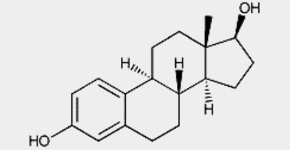Elevated uric acid levels and the incidence of clinical gout are exceedingly rare in women before menopause but rise after cessation of menses, potentially explained by an effect of estrogen on the renal handling of uric acid. Despite this well established association, little is known about the effect of post-menopausal estrogen replacement on uric acid levels in women. Here, Hak et al (Arthritis Research & Therapy 2008; 10: R116 (accessible free online here) explore the association of menopause and postmenopausal hormone replacement (HRT) on serum uric acid levels in women participating in the Third National Health and Nutrition Survey (NHANES III).
Methods
NHANES III enrolled a representative sample of the population of men and women from around the U.S. between 1988 and 1994. Participants answered health questionnaires and had a health examination, including providing blood and urine specimens. For these analyses, women 20 years and older were included with complete examination information who did not report a diagnosis of gout or the use of uric acid lowering medications. The association of menopausal status with serum uric acid level was assessed, stratified by self-reported HRT use. Adjustments was made for confounders such as age, smoking, body mass index, hypertension, renal function and use of diuretics, and intake of foods that may increase or decrease uric acid.
Results
A total of 7662 women were studied, 4156 (54%) were premenopausal. Of the postmenopausal women, most (87%) were naturally postmenopausal. The remaining women were surgically postmenopausal.
Postmenopausal women had serum uric acid levels that were 0.80 mg/dL higher, on average, than premenopausal women. Adjusting for confounders reduced the difference to approximately 0.35 mg/dL. Compared to never users of HRT, Current HRT users had uric acid levels were approximately 0.40 mg/dL lower. After adjustment, uric acid levels were 0.24 mg/dL lower, on average, in HRT users. The biggest adjusted differences in uric acid levels were in the women age 40 – 49 years of age, with differences decreasing with increasing age.
Conclusions
The association of menopause with increased uric acid levels was partially abrogated in women using HRT.
Editorial Comment
This is an interesting study that highlights the potential role of estrogens on uric acid handling. Although compelling, it does not prove that HRT reduces the risk of gout in women after menopause, or that HRT could be used as adjunctive urate lowering therapy in women who already have gout. However, further interventional investigations of this kind would certainly be warranted based on the results of this study. In any postmenopausal women, the risks of HRT (i.e. on cardiovascular disease and breast/uterine cancer) would need to be weighed against the potential benefits of urate lowering.


